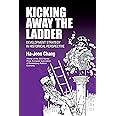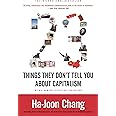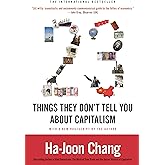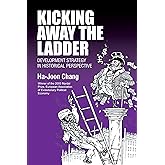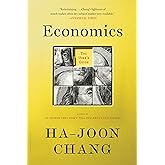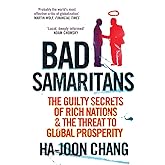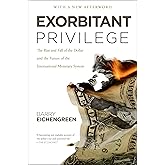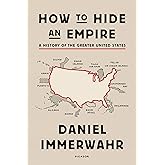
Amazon Prime Free Trial
FREE Delivery is available to Prime members. To join, select "Try Amazon Prime and start saving today with FREE Delivery" below the Add to Cart button and confirm your Prime free trial.
Amazon Prime members enjoy:- Cardmembers earn 5% Back at Amazon.com with a Prime Credit Card.
- Unlimited FREE Prime delivery
- Streaming of thousands of movies and TV shows with limited ads on Prime Video.
- A Kindle book to borrow for free each month - with no due dates
- Listen to over 2 million songs and hundreds of playlists
Important: Your credit card will NOT be charged when you start your free trial or if you cancel during the trial period. If you're happy with Amazon Prime, do nothing. At the end of the free trial, your membership will automatically upgrade to a monthly membership.
Buy new:
-32% $13.54$13.54
Ships from: Amazon.com Sold by: Amazon.com
Save with Used - Good
$8.19$8.19
Ships from: Amazon Sold by: Zoom Books Company

Download the free Kindle app and start reading Kindle books instantly on your smartphone, tablet, or computer - no Kindle device required.
Read instantly on your browser with Kindle for Web.
Using your mobile phone camera - scan the code below and download the Kindle app.



 Audible sample
Audible sample Bad Samaritans: The Myth of Free Trade and the Secret History of Capitalism Paperback – January 2, 2009
Purchase options and add-ons
"Lucid, deeply informed, and enlivened with striking illustrations." -Noam Chomsky
One economist has called Ha-Joon Chang "the most exciting thinker our profession has turned out in the past fifteen years." With Bad Samaritans, this provocative scholar bursts into the debate on globalization and economic justice.
Using irreverent wit, an engagingly personal style, and a battery of examples, Chang blasts holes in the "World Is Flat" orthodoxy of Thomas Friedman and other liberal economists who argue that only unfettered capitalism and wide-open international trade can lift struggling nations out of poverty. On the contrary, Chang shows, today's economic superpowers-from the U.S. to Britain to his native Korea-all attained prosperity by shameless protectionism and government intervention in industry. We have conveniently forgotten this fact, telling ourselves a fairy tale about the magic of free trade and-via our proxies such as the World Bank, International Monetary Fund, and World Trade Organization-ramming policies that suit ourselves down the throat of the developing world.
Unlike typical economists who construct models of how the marketplace should work, Chang examines the past: what has actually happened. His pungently contrarian history demolishes one pillar after another of free-market mythology. We treat patents and copyrights as sacrosanct-but developed our own industries by studiously copying others' technologies. We insist that centrally planned economies stifle growth-but many developing countries had higher GDP growth before they were pressured into deregulating their economies. Both justice and common sense, Chang argues, demand that we reevaluate the policies we force on nations that are struggling to follow in our footsteps.
- Print length288 pages
- LanguageEnglish
- PublisherBloomsbury Publishing
- Publication dateJanuary 2, 2009
- Dimensions5.5 x 0.85 x 8.25 inches
- ISBN-101596915986
- ISBN-13978-1596915985
Discover the latest buzz-worthy books, from mysteries and romance to humor and nonfiction. Explore more
Frequently bought together
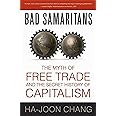
Customers who viewed this item also viewed
Editorial Reviews
Review
"Lucid, deeply informed, and enlivened with striking illustrations ... [Chang's] incisive analysis shows how, and why, prescriptions based on reigning doctrines have caused severe harm, particularly to the most vulnerable and defenseless, and are likely to continue to do so." - Noam Chomsky
"I recommend this book to people who have any interest in these issues - i.e. everyone." - Bob Geldof
"A smart, lively, and provocative book that offers us compelling new ways of looking at globalization." - Joseph Stiglitz, Nobel laureate in economics, 2001
" The resulting polemic about the shortcomings of neoliberal economic theory's belief in unlimited free-market competition and its effect on the developing world is provocative and may hold the key to similar miracles for some of the world's most troubled economies." - Publishers Weekly, starred review
About the Author
Ha-Joon Chang, a Korean native, has taught at the Faculty of Economics, University of Cambridge, since 1990. He has worked as a consultant for numerous international organizations, including various UN agencies, the World Bank, and the Asian Development Bank. He has published 11 books, including Kicking Away the Ladder, winner of the 2003 Myrdal Prize. In 2005, Ha-Joon Chang was awarded the 2005 Leontief Prize for Advancing the Frontiers of Economic Thought.
Ha-Joon Chang teaches economics at Cambridge University. His books include Reclaiming Development (Zed 2004) and 23 Things They Don't Tell You about Capitalism (2010).
Product details
- Publisher : Bloomsbury Publishing; Reprint edition (January 2, 2009)
- Language : English
- Paperback : 288 pages
- ISBN-10 : 1596915986
- ISBN-13 : 978-1596915985
- Item Weight : 2.31 pounds
- Dimensions : 5.5 x 0.85 x 8.25 inches
- Best Sellers Rank: #244,694 in Books (See Top 100 in Books)
- #341 in International Business & Investing
- #529 in Economic History (Books)
- Customer Reviews:
About the author

Discover more of the author’s books, see similar authors, read book recommendations and more.
Customer reviews
Customer Reviews, including Product Star Ratings help customers to learn more about the product and decide whether it is the right product for them.
To calculate the overall star rating and percentage breakdown by star, we don’t use a simple average. Instead, our system considers things like how recent a review is and if the reviewer bought the item on Amazon. It also analyzed reviews to verify trustworthiness.
Learn more how customers reviews work on AmazonCustomers say
Customers find the book well-researched and objective. They describe it as an interesting read for students of development economics. The writing style is described as easy to understand and compelling. Readers find the book valuable, making economics accessible for people like them. The book provides realistic views on international political and historical issues. Opinions differ on the premise, with some finding it raises the issue of free trade versus protectionism in a fresh perspective, while others say it debunks myths about capitalism and exposes the reality of market protectionism.
AI-generated from the text of customer reviews
Customers find the book informative and well-researched. They appreciate its objective approach and valuable collection of arguments and examples. The book provides a true account of economic history that economic professors often lack. It covers various myths about certain cultures being incapable of making progress. Readers also like the author's historical insights and broad intellectual horizons. Overall, it offers an interesting lens to view a predominant paradigm.
"..." in this book are visible, I strongly recommend this valuable collection of arguments and examples to every developing country government official,..." Read more
"...Two chapters in the book were particularly eye opening, My six-year old should get a job and Lazy Japanese and Thieving Germans...." Read more
"...on the otherhand the presentation of the author's arguments are well researched and presented even if they are based on some limited and biased..." Read more
"...Firmly backed by facts, figures, and analysis from a true scholar of economics at Cambridge University, one would be doing himself/herself a great..." Read more
Customers find the book easy to read and engaging. They say it's a must-read for development economics students, informative, and an excellent book for progressives seeking debate points when arguing with conservatives. The book is described as eye-opening and a good tool for rational discussions about trade-offs.
"...I would like to invest my own spare time to translate this wonderfully eye opening book into Turkish...." Read more
"...The book is good ammo for having a rational discussion about the trade offs and short comings of unfettered free market ideology." Read more
"...A good book that needs to be read alongside others on the core subject to get a well rounded insight." Read more
"...The book is well written and a great pleasure to read, and I highly recommend it to anyone who is interested in development." Read more
Customers find the book's writing style engaging and easy to read. They appreciate the author's clear explanation of difficult subjects, compelling descriptions, and masterful articulation of key points. The narrative structure is also appreciated, with no typos. Overall, readers find the message simple and straightforward, making it a worthwhile read.
"...It is also interesting to note that the vivid personal accounts of the author in the first chapter, about his childhood times in South Korea closely..." Read more
"Ha-Joon Chang has the gift of making difficult subjects easy to laypeople to understand...." Read more
"...The book is well written and a great pleasure to read, and I highly recommend it to anyone who is interested in development." Read more
"...This book has a much clearer narrative structure than the other, and does a very good job of chasing the (not so) secret history of protectionism..." Read more
Customers find the book informative and accessible. It provides interesting economic information and makes economics understandable for readers. The book is well-written and researched, making it a good addition to anyone's economic library.
"One of the best books on development economics, but also on how and why the world is the way it is...." Read more
"A great book on economics that demonstrates through facts how developed countries developed to where they are with less regulations than they have..." Read more
"...Must read for any interested in economic theory or international politics in general." Read more
"Makes economics accessible for people like me. Quite an accomplishment." Read more
Customers find the book provides realistic views on international politics and the recent history of Korea. They appreciate the clear illustrations, depicting the war scenes. The book is backed by facts, figures, and analysis from a scholar.
"...Firmly backed by facts, figures, and analysis from a true scholar of economics at Cambridge University, one would be doing himself/herself a great..." Read more
"...Overall, the author successfully (and almost visually) painted the sceneries of the war. The message was loud and clear, and often funny...." Read more
"...And he illustrates this with tremendous clarity...." Read more
"Very interesting picture of the recient history of Korea." Read more
Customers have different views on the book's premise. Some find it raises the issue of free trade versus protectionism and provides a fresh perspective on global trade and rich country policies. Others say it dispels myths about capitalism and exposes the reality of market protectionism. However, some readers feel the book is not anti-capitalist and strayed from the dogma of free market fundamentalism.
"This book provided me with a fresh perspective on best practices for international trade policy...." Read more
"...In case there is any misunderstanding: This is not an anti-capitalist book...." Read more
"Factual, looking beyond the headlines. A fresh perspective of global trade and rich country policies looking inward and outward...." Read more
"...It dispels the myths of capitalism and exposes the reality of market protectionism practiced by every country that is wealthy today...." Read more
Reviews with images
Great read for economists and the like minded
Top reviews from the United States
There was a problem filtering reviews right now. Please try again later.
- Reviewed in the United States on April 29, 2008Coming from Turkey where all the illnesses and problems caused by the attitudes of the "Bad Samaritans" in this book are visible, I strongly recommend this valuable collection of arguments and examples to every developing country government official, especially to my own.
The arguments in the book cleverly and clearly demonstrates how IMF, The World Bank and WTO trio pressures developing countries for strictly following free-trade practices while the country's citizens suffer under well developed tactics of rich multinational companies, freely moving hot money of the global funds and all sorts of international pressures on the developing governments and media. These tactics are at work in my country now and they are stronger than ever: All profit making SOE's have been sold, the Istanbul Stock Exchange is a little toy shop for the fast moving foreign money and there is hardly any bank left for Turkish owners.
No rich country in the world became what it is, with free-trade, let them do methods. This is a fact the author very clearly demonstrates. As a matter of fact there is a former and more technical book on the same subject and this new book is in a way a laymen version of "Kicking Away the Ladder", Chang's 2002 book.
I would like to invest my own spare time to translate this wonderfully eye opening book into Turkish. It is also interesting to note that the vivid personal accounts of the author in the first chapter, about his childhood times in South Korea closely resembles my own in the 1970's Turkey. It is sad for me to realize once again that Korean policy-makers have understood the lessons examined in this book early on, in the 1980's, and the Turkish politicians and business elders missed them. It is no coincidence that this book was written by a Korean economist.
Excellent read, recommended to every developing country policy maker and citizen. And I don't think any reviewer from a developed country gets how terrible the situation caused by the neoliberal policies is, as far as I can tell from the reviews written here.
- Reviewed in the United States on August 24, 2013Ha-Joon Chang has the gift of making difficult subjects easy to laypeople to understand.
He makes a rational spirited attack on what he feels is the hypocrisy of the developed countries, the ridged ideology of the free market economists which drive agencies like the IMF.
Most chapters are filled with history lessons on how developed countries in the early days engaged in tariffs, capital controls, intellectual property theft and hard limits on foreign ownership. At least until their
industries had matured to level of competing in the global market. Then changed the tune, started lecturing all the developing countries through the IMF and other agencies not to do any of those things. Usually, the countries that followed the IMF advice had more negative results than positive. The author states the trade offs between political economy and the free market, in a detailed section on the rise of South Korea, his home.
Two chapters in the book were particularly eye opening, My six-year old should get a job and Lazy Japanese and Thieving Germans. The first chapter points out the problems with not protecting an industry while it gains technical expertise and capacity. Give the child time to go to school and get bigger. The second chapter is about how some developed countries were considered basket cases, their people are not capable of achieving developed status, a claim I have heard used against developing countries that have listened to the IMF, then fallen on hard times.
The book is good ammo for having a rational discussion about the trade offs and short comings of unfettered free market ideology.
- Reviewed in the United States on June 22, 2010The process of exchange, the naurally induced human desire to trade with others and a trait not possessed by any other species on earth, is at the threashold of
the transactional system that evolved into capitalism. Without such imperative the world would nevr have progressed. Trade is a conerstone for the development of civilization and like any other human driver it is fought with problems. It mjght have been valuable if the author had noted that capitalism, a form of basic human exchange, is a model for wealth accumulation and not for equal distribution of its product. There is no real secret as the commercializtion of the world, today's modern globalization, has come with both good and bad. A bit more balance as to the pros and cons along with a more in depth and wider historic examination of the emrging process in antiquity ould have made for a better book. But on the otherhand the presentation of the author's arguments are well researched and presented even if they are based on some limited and biased present world economic events. In the end we live in a borderless integrated world that requires some new direction and the term curently applied, globalization, needs to atke into account taht the process is a contiuing one with adjustment and change still coming. A good book that needs to be read alongside others on the core subject to get a well rounded insight.
Top reviews from other countries
 TundeReviewed in Canada on September 24, 2024
TundeReviewed in Canada on September 24, 20245.0 out of 5 stars A good book
It’s a really detailed and great read
-
 RafaReviewed in Mexico on February 1, 2024
RafaReviewed in Mexico on February 1, 20245.0 out of 5 stars Este libro es una joya. Lo conocí como audiolibro y me gustó ta to que me lo compré en físico
Este libro es una joya. Lo conocí en formato de audiolibro y me gustó tanto que lo compré también en físico
 Tashi PareekReviewed in India on October 28, 2019
Tashi PareekReviewed in India on October 28, 20195.0 out of 5 stars Highly recommended
Insightful, well arguemented and provocative
-
 antoine bertettoReviewed in France on September 13, 2018
antoine bertettoReviewed in France on September 13, 20185.0 out of 5 stars Essaie economique à recommander
L'auteur est un économiste sur coréen ayant un point de vu sans oeillière sur l'économie, cette matière étant trop souvent basé sur des postulats politiques plutôt que sur l'expérience vécue. L'idée de ce livre est justement d'ouvrir les yeux sur les remèdes de certains "mauvais samaritains", pétries de bonnes intentions, mais candides quant au socle de leur raisonnement. L'avantage de ce livre est qu'il regarde quelles sont les puissances industrielles actuelles et par quels chemins elles y sont parvenues. Ce livre peut susciter des objections, cependant les points soulevés sont très pertinents et méritent d'être écoutés.
De plus, c'est un livre assez court et de lecture très commode.
 VielleserReviewed in Germany on May 31, 2018
VielleserReviewed in Germany on May 31, 20185.0 out of 5 stars Interesting summary on economic development and how poor countries are held back
What a great book. It shows that free-trade that seems to be fair, isn't. Why? Because all the rich countries now, had some sort of protection for their infant industries and only opened their borders, after those industries were able to compete on the world market. However, the rich countries do NOT give this opportunity to poorer countries, meaning that they are not able to develop own industries, strong enough to compete. But this hinders development in those countries. Similar issues with intellectual property rights. All that lobbying of so many large, competitive companies is effectively holding poor countries back.
Reading that stuff gives you a different view on some of the economic issues nowadays. Clear recommendation!





